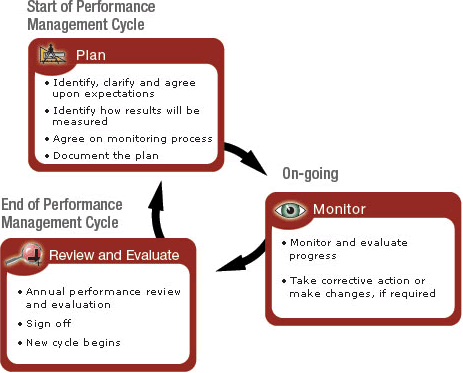Evaluating Management Performance
Post on: 2 Май, 2015 No Comment

Does Your Firm Measure Up?
Article Options
Professional residential management is a service industry, and some service providers perform better than others. To evaluate how your property’s management measures up, it’s necessary to assess both how the company functions as a whole and also how your individual managing agent is performing. To do that, it’s important first to understand what professional management is supposed to do, and then to have a clear picture of what really good management looks like.
The Basic Menu
Every full-service firm worth its fee should provide management of your property’s finances and accurate, up-to-date financial reports on a regular basis as well as oversight of your property’s structural and mechanical elements. The firm should also supervise your property’s staff, including hiring, firing and documentation of staff performance and it should provide appropriate and timely response to federal, state and local laws and to violations issued against your property.
You should also expect maintenance of accurate, accessible files and records for your property and preparation foras well as attendance atregular and special board, annual and other meetings of your property. Last, but not least, the firm should provide knowledgeable interaction with your property’s other professionals such as legal counsel, accountant, engineer and architect in addition to effective responses to resident inquiries and concerns. Many management companies, either as part of their standard management fee or at cost above that, also offer ancillary services such as transfer and closing services, sales and brokerage, construction management, utility bill evaluation and refund application.
Evaluating the Firm
Assuming your management company is providing the basic service menu, you can expand your evaluation by looking at other areas like the firm’s commitment to performance. We operate our properties as though we were the owners, says Eugene Warren, a partner with Buchbinder & Warren, a Manhattan-based firm managing more than 100 properties. We take on all the responsibilities of operating the building.
At Mark Greenberg Real Estate (MGRE), a Long Island-based management company that manages more than 50 properties throughout New York City and Long Island, vice president Jim Goldstick and director of management Steve Greenbaum attend just about every board meeting with their agents. We’re there to make sure that the agent has the benefit of all the expertise our company can provide. For boards to be most satisfied, they need not only back-office support, but also support from the principals, says Greenbaum, who calls this the MGRE Team Approach.
Teamwork is indeed critical to management, which is why companies that support their managers with assistants who attend to paperwork and field calls when the agent is unavailable generally demonstrate a higher level of effectiveness. Companies that support their managers with access to in-house experts also are better able to serve their clients. At Buchbinder & Warren, there’s one employee whose primary job is to deal with boiler issues, one who is expert in insurance, another who handles matters of unsold shares, and yet another in charge of curing violations. At Rose Associates, a Manhattan firm managing more than 50 metropolitan properties, a full-time supervisor of maintenance acts as internal consultant for managers and superintendents, a resource, according to director of management J. Brian Peters, that’s very beneficial to clients.
While the services management performs are generally universal for all properties, no two properties are alike. So it’s important to know that your management company has a tailored procedure in place to ensure uninterrupted service to your individual property. Some companies conduct weekly full-staff meetings so that the principals, their managers and all back-office support personnel stay informed of what’s going on with each building and so that, at any time, any manager can step in to fill the shoes of another. If your management company doesn’t follow this practice, you may want to find out how your building will be managed if your agent disappears from the scene.
Rating the Agent
While the internal operation of your management company is obviously crucial to performance, The key to successful management is the right property manager, says Elizabeth Whitcomb Brown, long-time board president of The Dorchester, a 107-unit midtown Manhattan co-op managed by Brown Harris Stevens. According to Brown, your managing agent should be working for your property with the understanding that he is answerable to the board, and that ongoing communication with the board is essential to productivity. Whether this communication takes the form of phone calls or written memos, Communication lets the board know that the agent is following through, agrees Peters.
Ideally, the agent should respond to residents’ questions and concerns in a timely, courteous and knowledgeable manner, as is the case with Kerry Smith, managing agent of 870 United Nations Plaza, a 175-unit co-op in the Rose portfolio. Kerry has the ability to deal with people and with problems that others would walk away from, says board president Donald Bady. Because he can handle everyone from an irate elderly person to a five-year-old child, the residents don’t bother the board.














